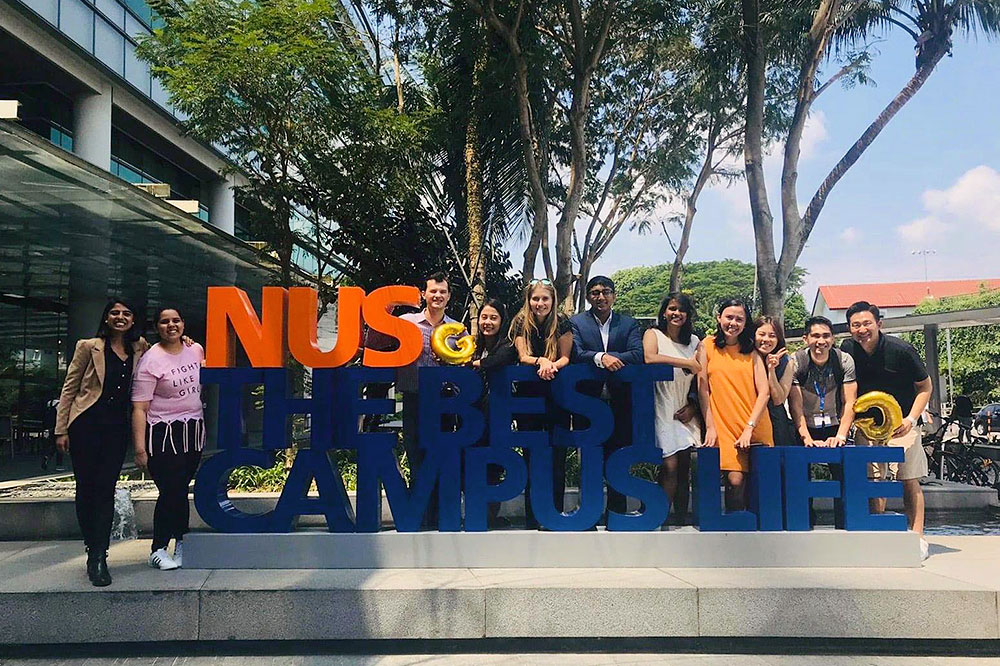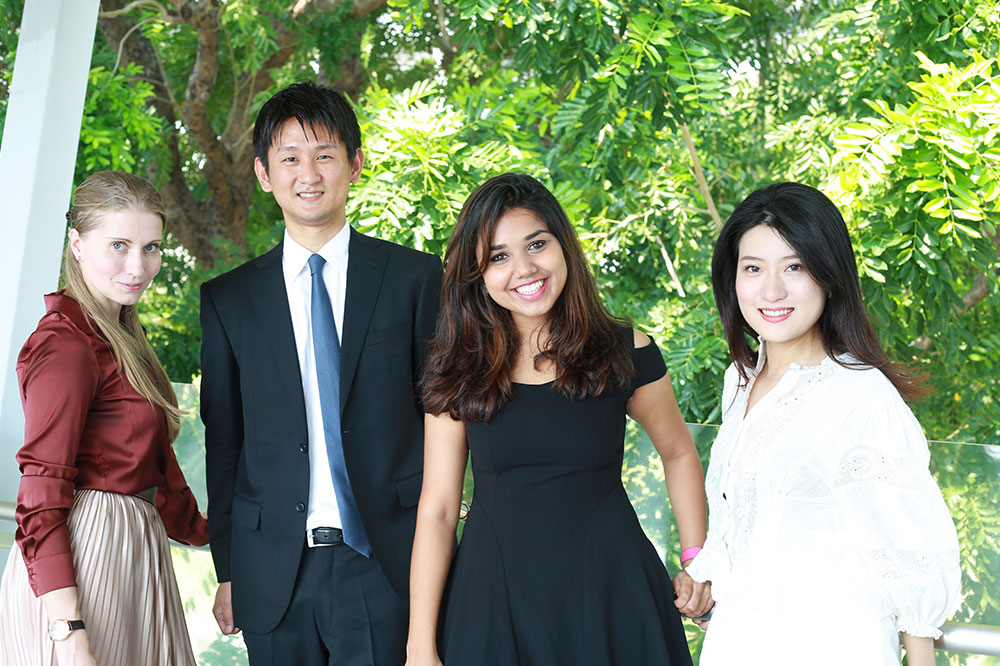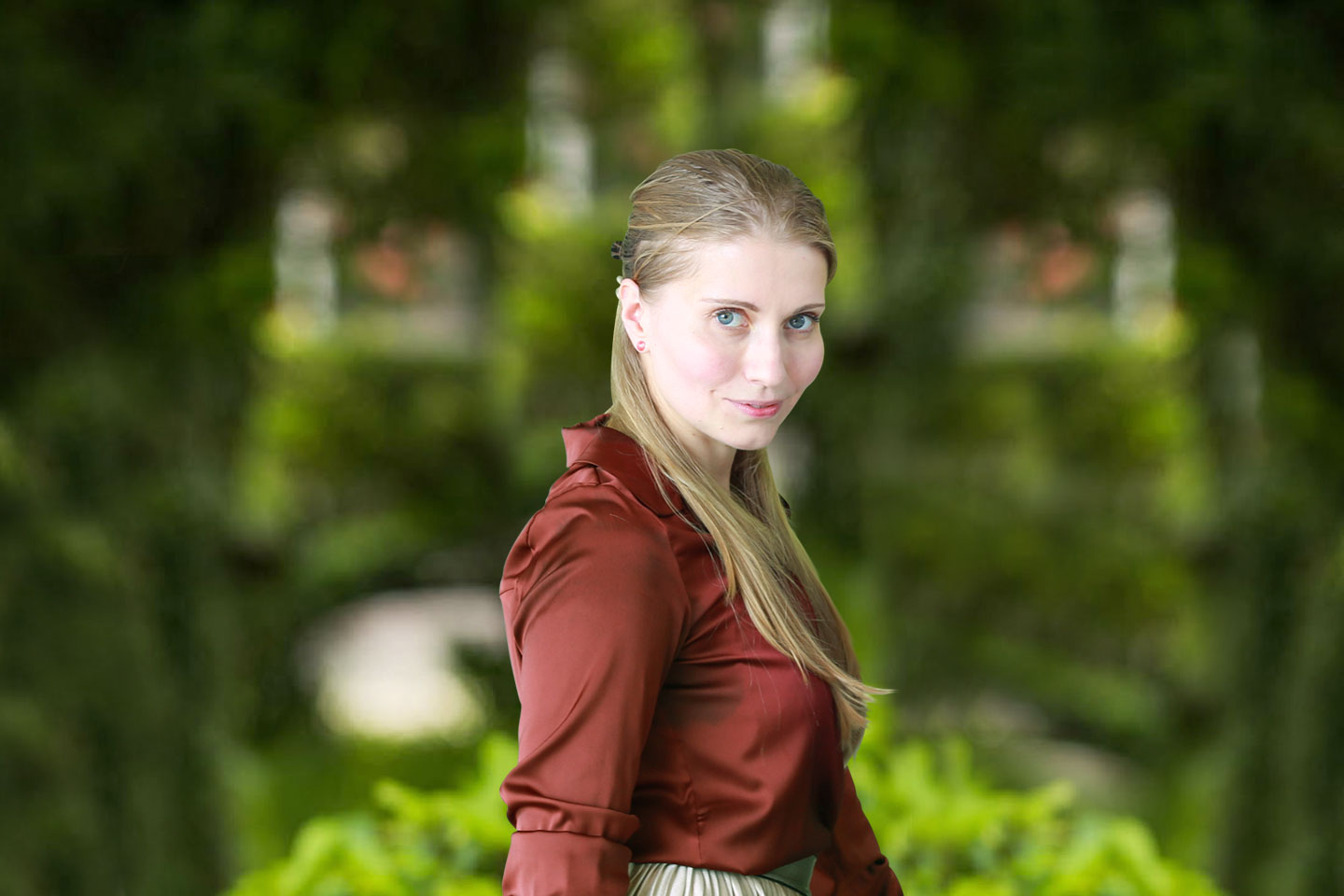After spending more than a decade working in Russia’s railway industry, Julia Kozina felt that it was time for a change.
Although her job afforded her a leadership role with stability, “something was missing,” Julia explained. That missing link turned out to be an MBA.
Inspired by friends who pursued graduate studies, Julia enjoyed hearing anecdotes about their experiences living overseas, soaking up different cultures and working in multinational companies. The one thing all the stories had in common was the positive transformation an MBA would have on life and work. “They took a leap forward in their lives and I wanted to have that experience,” she said.

Julia (centre, with sunglasses) and her classmates
Choosing “Asia’s Switzerland”
To narrow down the list of options available, Julia started by looking at schools located in strong trading hubs such as China, Hong Kong, South Korea and Singapore. With her background in transport and logistics, she felt it would make sense to continue her career development locally after graduation.
She finally picked Singapore as she sees the city-state as Asia’s Switzerland – a regional financial centre with a hive of business activity. She was also attracted to The NUS MBA programme’s global recognition and its curriculum’s Asian focus. The cosmopolitan city’s established infrastructure and amenities, as well as its reputation for being safe also influenced her decision. “There is plenty to choose from in terms of nightlife, and one can have fun while staying safe,” she pointed out.
Strength in diversity
A year in as an MBA candidate and the experience has surpassed Julia’s expectations. She relishes the global nature of The NUS MBA, with daily opportunities to debate and discuss issues with some 120 faculty come from 19 locations around the world. “Being guided by faculty from different backgrounds and experiences enables me to look at issues from different angles. We can understand not just the Asian market, but global trends too,” said Julia.
Her diverse class of 50 comprises of over 30 nationalities with a wealth of different industry experiences. “I have the opportunity to meet people from all over the world in an intimate setting. You can get to know everyone quickly, making class discussions more honest and lively,” added Julia.

Julia with her classmates; Hiroshi Kawachi, Kritika Rajwani and Yun Yi Wang. Photo by Julia.
She has also found time to develop her interest in photography. The programme office found out that Julia is an avid photographer and recruited her to take photos of MBA candidates as part of a portfolio project on the School’s MBA portal. She took corporate photos of some 70 fellow students in a session. It took four weeks to shoot and edit about 1,000 photos. The students even used the photos for their LinkedIn profiles, CVs and student club collaterals. “This is a recognition of my work. The project was also a good way to know other students better,” she said.
The NUS MBA’s value
Looking back at her time in NUS, Julia said she regrets not attending more networking events such as informal business meetings and coffee chats.
She was too focused on her studies initially, and realised she was missing out only after she attended her first event and discovered that they are crucial to opening up doors to the corporate world.
Julia would spend time attending conferences, networking with industry professionals. “They can give you career advice and even recommend potential jobs,” Julia explained. In fact, it was a contact that led her to an internship at a multinational transport giant.
“Now, when I look at the contact list on my phone and collection of business cards, this is the whole value of the MBA,” said Julia.
Life in Singapore is not without its challenges. Singapore is one of the most expensive cities in the world, so one has to be ready for the high standards of living here. One must also be mentally prepared that it could take a while to find a suitable job, given the competitive economy here.
According to Julia, potential students considering The NUS MBA need to answer one important question – Are you ready for a competitive and multicultural society or would you prefer to stay put in a comfortable and familiar environment?
For Julia, she’s ready to take on the world!
Cover photo by Julia Kozina





